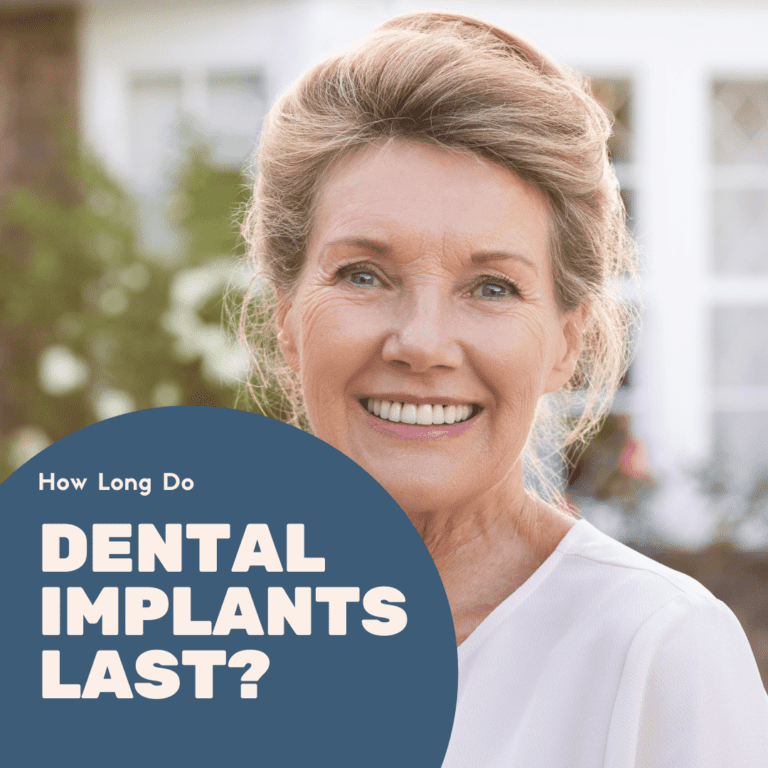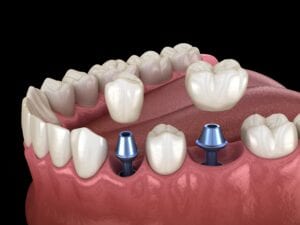How Long Do Dental Implants Last?

Dental implants are known for many things such as their aesthetic appearance, strength, and ability to mimic the function of natural teeth. Another thing dental implants are known for is their longevity. Since they are promoted as being long-lasting, many people want to know just how long they can expect a dental implant to last. Of course to answer this question, there are a few things that must be taken into consideration.

For starters, it is important to first understand the basic structure of a dental implant. This is because implants are composed of three different parts that affect their total lifespan. The first part, of course, is the implant itself. The implant is a hollow screw that is implanted into the jawbone. After the implant screw is placed, it will heal and fuse with the surrounding bone. Next, is the abutment, which is a metal connector piece that screws into the implant. The abutment is designed to extend above the gum line. The final component is the restoration, which can be a crown, bridge, or denture that is mounted to the abutment.
Now that we know the basic structure of an implant, let’s take a look at how long these components last. Generally speaking, the implant screw is the longest-lasting component, while the dental prosthesis tends to need replacement more often. The abutment may or may not require replacement at the same time as the prosthesis. On average, you can expect your implant screw to last about 25 years, possibly longer. The restoration mounted to the implant screw, however, tends to only last about 10-15 years. However, there are different factors that can affect this, such as:
- Dental Materials: some dental materials are stronger than others and can last longer than other materials.
- Type of Restoration: implant-supported crowns that are used to replace a single missing tooth tend to last longer than implant-supported dentures used to replace an entire arch of missing teeth.
- Location: in the case of an implant-supported crown or bridge, those placed towards the front of the mouth generally last longer than those placed in the back of the mouth. This is because the back teeth exert the greatest amount of chewing force.
- Oral Habits: people who grind or clench their teeth exert more force on their restorations, which can cause them to become damaged and/or wear down faster.
- Oral Hygiene: people who don’t practice good oral hygiene are more susceptible to gum disease. Gum disease can infect the jawbone around the implant and cause it to deteriorate. This can cause the implant to fail.
In most cases, you can expect your dental prosthesis to need replacement before the implant itself. In fact, some experts believe that implants can be permanent as long as they are properly cared for. One benefit of having dental implants composed of three components is that these components can be replaced separately. This ultimately means that your dentist can replace your dental prosthesis, as well as the abutment, without needing to remove or replace the implant screw. This allows you to replace worn restorations easily, quickly, and painlessly.






Recent Comments